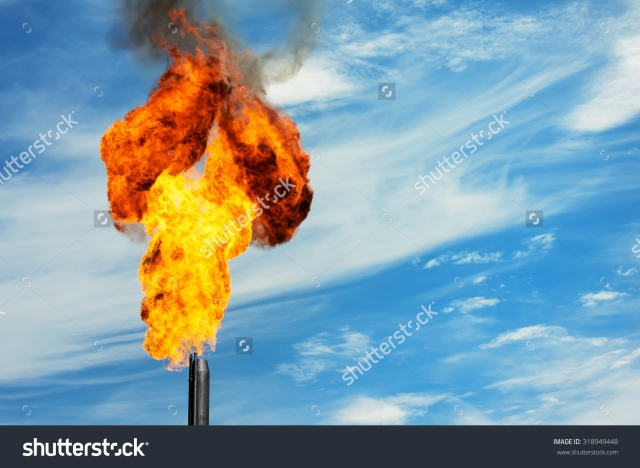Fracking and all of us: recent news
To further our understanding of what’s accelerating climate change, here’s a brand-new report from the David Suzuki Foundation about leaking of methane from fracking and other fossil fuel extraction being much greater than reported by industry and government, and how it has been measured, and why it’s scary:
Methane emissions much higher than reported, threaten climate and GHG reduction targets
Groundbreaking new research estimates fugitive methane emissions from B.C. oil and natural gas operations — the majority of which use hydraulic fracturing (fracking) — are at least 2.5 times higher than reported by the B.C. government and may be much higher.
The study, conducted by the David Suzuki Foundation in partnership with St. Francis Xavier University, is the first on-the-ground, comprehensive research on methane emissions in Canada. It highlights the urgent need for the federal government to get methane emissions under control and not delay action as it recently proposed.
“Our peer-reviewed research shows the true magnitude of Canada’s methane pollution problem is much bigger than previously estimated by industry and government,” Ian Bruce, Foundation director of science and policy said. “Now that we know the extent of the problem, the David Suzuki Foundation is calling on the federal government to take a responsible approach by quickly enacting strong regulations and ensuring industry follows them.
“The federal government has the power to do what’s right. It should re-commit to enact strong regulations within months, not years,” Bruce said. “The science is clear: Cutting methane pollution is one of the cheapest and most effective ways to address climate change. The technology exists to eliminate industry-released methane.”
Over a 20-year period, methane is 84 times more potent than carbon dioxide as a climate pollutant. Leading scientists estimate that methane is responsible for 25 per cent of already observed changes to Earth’s climate — why it’s identified as a top climate priority globally.
This research is the first ground-based measurement of methane emissions ever conducted in Canada. In 2015 and 2016, scientists travelled more than 8,000 kilometres using vehicle-mounted gas-detection instruments (a sniffer truck), covering more than 1,600 well pads and facilities in B.C.’s Montney formation. The results are available and undergoing final review in the peer-reviewed scientific journal Atmospheric Chemistry and Physics Discussions.
The research reveals that B.C.’s Montney region alone leaks more than 111,800 tonnes of methane into the air every year. This is the climate pollution equivalent of burning more than 4.5 million tonnes of coal or putting more than two million cars on the road.
Today, Environmental Defence also released a new report showing methane emissions from Alberta’s oil and gas industry are significantly higher than previously reported, and pointing to the need for strong federal regulations now to reduce and eliminate these emissions.
“Applied at a national scale, these findings show that fracked gas — rather than serving as a ‘clean’ transition fuel — actually makes it harder for Canada to meet its climate change commitments,” Bruce said. “Although our research shows that methane pollution is a big part of the problem, if action is taken now it can also be a big part of the solution.”
The news item above is published with the permission of the David Suzuki Foundation.
Editor’s Note: For yet more information on the effects of hydraulic fracturing, or fracking, here are links to some of the many news reports, both recent and from earlier years, linking fracking operations in BC (and elsewhere) to an increase in nearby earthquakes, and the potential for fracking to alter or contaminate aquifers that provide drinking water:
https://thetyee.ca/News/2017/04/18/Mega-Fracking-Quake/
http://tumblerridgenews.com/whats-with-all-the-fracking-earthquakes/
https://www.scientificamerican.com/article/fracking-can-contaminate-drinking-water/
http://www.hcn.org/articles/new-research-links-fracking-contamination-groundwater-pavillion-wyoming
The Precautionary Principle, anyone? Wikipedia defines that principle:
“The precautionary principle (or precautionary approach) to risk management states that if an action or policy has a suspected risk of causing harm to the public, or to the environment, in the absence of scientific consensus (that the action or policy is not harmful), the burden of proof that it is not harmful falls on those taking that action.
“The principle is used by policy makers to justify discretionary decisions in situations where there is the possibility of harm from making a certain decision (e.g. taking a particular course of action) when extensive scientific knowledge on the matter is lacking. The principle implies that there is a social responsibility to protect the public from exposure to harm, when scientific investigation has found a plausible risk. These protections can be relaxed only if further scientific findings emerge that provide sound evidence that no harm will result.
“In some legal systems, as in law of the European Union, the application of the precautionary principle has been made a statutory requirement in some areas of law.”


























